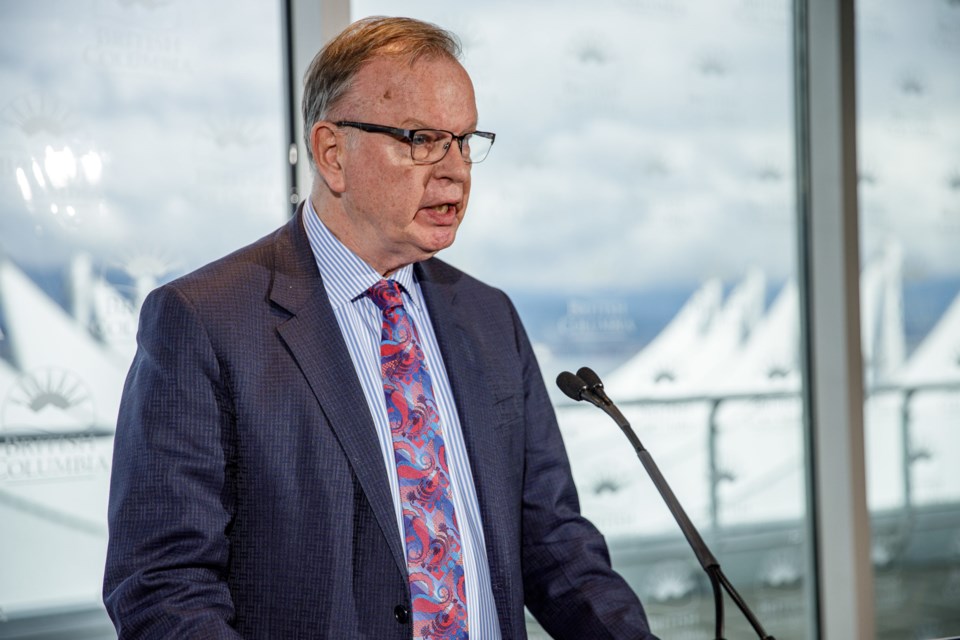B.C. announced a “review” of its royalty regime for the oil and gas sector this week that marks the clear beginning of the end for billions of dollars in subsidies to fossil fuel producers.
Energy Minister Bruce Ralston launched what he described as a “review process” to “allow the public to have their say” on the issue through a discussion paper next month and an engagement strategy following shortly after.
Sounds pretty dry.
But to start the discussion, Ralston also released an independent report the government had commissioned into the existing royalty system for oil and gas.
In it, two university economists deliver the academic equivalent of a flying dropkick to BC’s existing system of royalties and credits for oil and gas, describing it as a complex patchwork of outdated and unnecessary corporate giveaways that is obviously out of alignment with government priorities like fighting climate change.
“The BC royalty system for natural gas and oil is broken,” reads the report by Jennifer Winter and Nancy Olewiler.
“It does not support and contribute to government and societal goals. It consists of piecemeal modifications to a system that was designed for a different era with different risks, technology, and market conditions.”
B.C. has over time provided more than $7 billion in credits to companies for things like deep well natural gas projects, to try and spur more wells, more drilling and ultimately more royalties back to the province. But over 30 years, the royalty regime has grown immensely complicated and is now doing more harm than good, the academics concluded.
“The system is excessively complex, has large compliance costs for industry and large administrative and auditing costs for government,” reads the report.
“It creates incentives that do not promote efficiency in the sector. It has contributed to a significant decline in the Crown’s share of the net economic value from petroleum and natural gas resources over the past 15 years and a transfer of value from the province to industry.”
The authors conclude some of the government credits are actually keeping gas wells open that would otherwise be uneconomical, distorting the industry, preventing companies from investing in new cleaner technology, and ultimately robbing the public of a fair return on natural resource extraction.
The report provides effective cover for what the BC NDP government was always going to anyway, which is to end most of the subsidies to fossil fuel companies and package the move up as part of a refreshed plan to reduce greenhouse gas emissions and fight climate change.
That a New Democrat-led government still gives away billions of dollars to oil and gas companies after more than four years of power has outraged environmental groups and longtime NDP supporters, who’ve said the party should be instead providing financial support to companies investing in new clean sources of energy. It’s particularly contentious when hundreds of millions of dollars flow out in tax credits for fracking wells, which can pollute the water supply and lead to other environmental problems.
Politically, the BC NDP’s continued subsidies are offside with the federal wing of its party, which promised in the September election to eliminate them entirely.
Premier John Horgan is also set to be outpaced by Prime Minister Justin Trudeau, who has pledged to end federal subsidies to oil and gas within two years.
But in a larger sense, propping up the oil and gas sector is offside with the environmentally-conscious urban voters in Metro Vancouver that the BC NDP has so carefully courted for the past two elections, and which now forms its power base.
In the 1990s BC NDP government, Horgan helped work on policies that grew the oil and gas sector, generating jobs for the unionized hard-hat wearing side of the party. But those days are over, and it appears he’s come around to the need for change as well.
“A review is long overdue to eliminate outdated, inefficient fossil fuel subsidies,” the premier tweeted after the report was released.
“Our government is working to modernize the royalty system so it can help reduce emissions and deliver a fair return for British Columbians.”
Inside the BC NDP caucus, the more strident environmentally-conscious urban MLAs, who don’t particularly care about any job losses in the province’s north, are clear about what they want the “review” to conclude.
“Long overdue!!” tweeted North Vancouver-Lonsdale MLA Bowinn Ma. “Our BC Government is launching the first comprehensive review of the royalty system in nearly 30 years and I'm looking forward to seeing BC finally eliminate the outdated fossil fuel subsidies ingrained in our current system.”
Ma went on to encourage people to “mark your calendars to participate in the public engagement process in November.”
But it won’t really matter what anyone says. It’s clear what the government's next move will be. And it’s long overdue.
Rob Shaw has spent more than 13 years covering BC politics, now reporting for CHEK News and writing for The Orca. He is the co-author of the national best-selling book A Matter of Confidence, and a regular guest on CBC Radio.
SWIM ON:
- Rob Shaw: ‘The BC government has effectively tossed school trustees to the wolves and looked the other way.’
- In July, Mark Milke wrote that BC needs its resource sector, and another multibillion dollar project is a welcome change.
- In 2019, Prince George Mayor Lyn Hall mused about the future of BC's resource-based communities.



